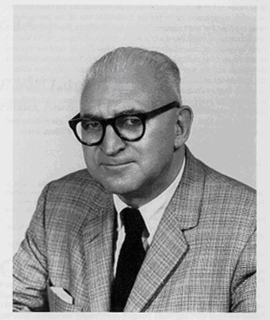A Quote by Bertrand Russell
The criminal law has, from the point of view of thwarted virtue, the merit of allowing an outlet for those impulses of aggression which cowardice, disguised as morality, restrains in their more spontaneous forms. War has the same merit. You must not kill you neighbor, whom perhaps you genuinely hate, but by a little propaganda this hate can be transferred to some foreign nation, against whom all your murderous impulses become patriotic heroism.
Quote Topics
Related Quotes
So great are the psychological resistances to war in modern nations, that every war must appear to be a war of defence against a menacing, murderous aggressor. There must be no ambiguity about whom the public is to hate. Guilt and guilelessness must be assessed geographically and all the guilt must be on the other side of the frontier.
My chief aim was to combat the view that there can be no true morality without supernatural sanctions. So I argued at length that the social, or altruistic, impulses are the real source of morality, and that an ethic based on these impulses has far more claim on our allegiance than an ethic based on obedience to the commands of a God who created tapeworms and cancer-cells.
There are few people whom I really love, and still fewer of whom I think well. The more I see of the world, the more am I dissatisfied with it; and every day confirms my belief of the inconsistency of all human characters, and of the little dependence that can be placed on the appearance of merit or sense.
Before I knew that a man could kill a man, because it happens all the time. Now I know that even the person with whom you've shared food, or whom you've slept, even he can kill you with no trouble. The closest neighbor can kill you with his teeth: that is what I have Learned since the genocide, and my eyes no longer gaze the same on the face of the world.
The sinners to whom Jesus directed His messianic ministry were not those who skipped morning devotions or Sunday church. His ministry was to those whom society considered real sinners. They had done nothing to merit salvation. Yet they opened themselves to the gift that was offered them. On the other hand, the self-righteous placed their trust in the works of the Law and closed their hearts to the message of grace.
I don't think my father considered allowing a teenager to follow his dreams was necessarily good parenting, or even parenting. I think he thought I was a teenager with teenage impulses. I'm pretty sure he knew that if he just let me follow those impulses, it would wind up being very expensive and perhaps even life-endangering.
You must begin to trust yourself sometime. I suggest you do it now. If you do not then you will forever be looking to others to prove your own merit to you, and you will never be satisfied. You will always be asking others what to do, and at the same time, resenting those from whom you seek such aid.
Good sense tells us that earthly things are rare and fleeting, and that true reality exists only in dreams. To draw sustenance from happiness- natural or artificial - you must first have the courage to swallow it; and those who perhaps most merit happiness are precisely those on whom felicity, as mortals conceive it, always acts as a vomitive.



































